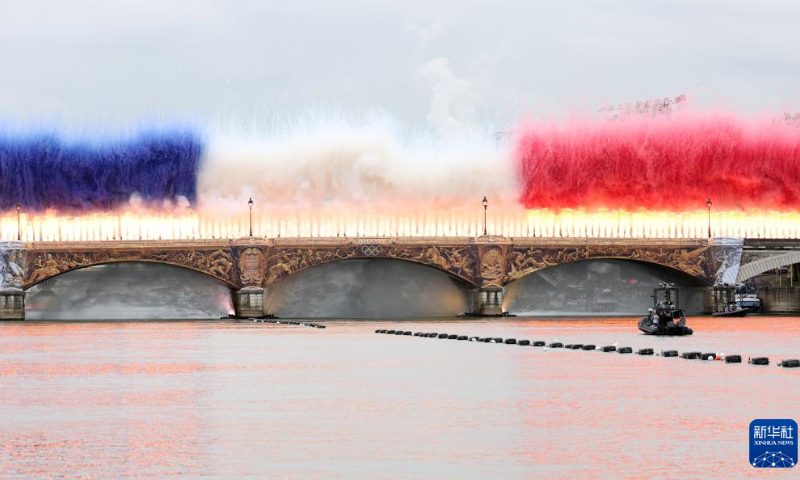
Photo: Xinhua
In the eyes of many Chinese, French culture is often regarded as a symbol of romance, elegance and beauty. However, some parts in the opening ceremony of the Paris Olympic Games have been somewhat challenging to understand, sparking controversy. Is the French culture itself going through an unprecedented increase in cultural divisions?
During the Paris Olympics opening ceremony, a performance featuring drag queens, dancers, and models sparked enormous controversy. Mimicking Leonardo da Vinci's
The Last Supper, the act drew severe criticism from Western conservatives and religious groups.
Some hailed the performance as a celebration of France's rich cultural diversity and openness. However, right-wing critics argued that the portrayal of France's multicultural society and the inclusion of avant-garde art forms undermined traditional French and Christian values.
This controversy highlights the deep-seated cultural divisions in France and other Western developed nations in the post-industrial era.
As societies become increasingly diverse and globalized, the notion of a singular, unified cultural identity is being challenged. The tension between preserving traditional values and embracing cultural diversity - often framed as a left-wing versus right-wing conflict - is common in many Western countries.
In France, the concept of "Frenchness" has long been closely tied to the nation's rich cultural heritage, including its art, literature, cuisine and history. However, the growing diversity of France's population, particularly in urban areas, has led to a reevaluation of what it means to be French.
On one side, conservative groups strive to maintain what they consider the quintessential French identity, characterized by the country's history, language and tradition. Conversely, progressives advocate for an evolving identity that embraces diversity and modern influences. This tension extends beyond art and culture, touching on issues pertaining to national identity and social values.
Economic inequality has further exacerbated these cultural tensions.
In recent years, France has experienced several socio-economic upheavals, most notably the Yellow Vests movement. This grassroots protest stemmed from widespread discontent with economic disparities, government neglect of rural areas and the impacts of neoliberal economic policies. The movement highlighted deep divisions between urban and rural populations, elites and working-class citizens, and those who benefit from globalization and those left behind.
Such cultural divides are not unique to France. In many Western developed countries, the post-industrial era has brought significant cultural shifts. The decline of traditional industries and globalization have increased mobility and diversity, challenging conventional notions of cultural identity.
For example, in the US, debates over immigration and cultural diversity have been contentious for decades. The rise of nationalist and populist movements in Western developed nations reflects a reaction to perceived threats to traditional and religious values and economic security.
The rise of social media has also played a crucial role in exacerbating these cultural divides. Social media platforms create echo chambers where individuals can connect with those who have the same views and values, reinforcing existing beliefs and biases. This leads to polarization, with individuals becoming increasingly entrenched in their viewpoints.
The post-industrial era has also brought significant economic changes. The decline of traditional industries has led to unemployment and financial insecurity, particularly in rural areas. This has fueled resentment toward globalization and immigration, which are both viewed as threats to the traditional way of life.
If the opening ceremony of the Paris Olympic Games showed us anything, it is that Western culture is experiencing an unprecedented gap. How this will evolve, and whether it will be reconciled, are related to the impact of Western culture on global geopolitics.
The author is a senior editor with People's Daily, and currently a senior fellow with the Chongyang Institute for Financial Studies at Renmin University of China. dinggang@globaltimes.com.cn. Follow him on Twitter @dinggangchina




